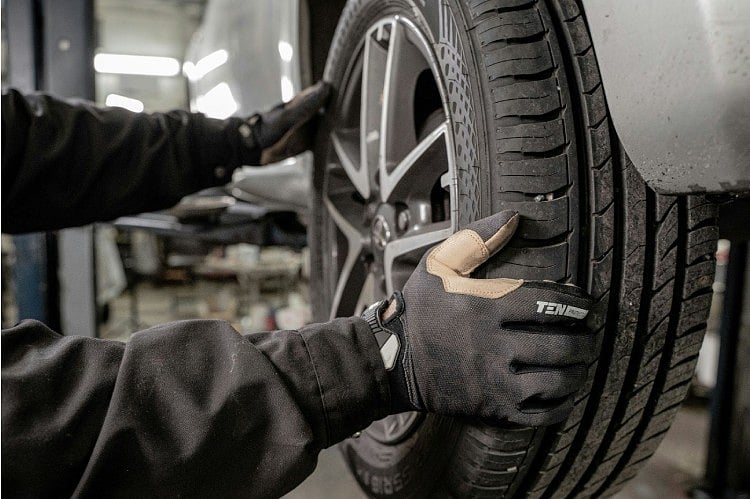Knowledge Hub
Knowledge Hub

9 factors that affect your vehicle premiums
Motoring and Travel
September 11, 2020
Getting a car insurance quote over the phone can seem like you’re being interviewed for your own biography. Insurance consultants ask so. many. questions. Some of the information insurance companies need might seem a little unnecessary and even downright invasive. But every bit of info you provide helps give you an accurate and fair insurance quote so you can be certain you’ll be covered when the time comes to claim. So, how do insurers calculate your premiums? How do they get to that monthly amount from all of the information you give them?
It’s all about how much risk you, your vehicle, and the regular driver pose to the insurance company. In simple terms, the greater your risk, the greater the insurance company’s risk is in insuring you. If you’re more technical-minded, this formula may help you understand it:
Risk = probability x loss.
Basically this means: How likely you are to claim (let’s say you have a history of regular bumper-bashings) multiplied by the amount the average payout is likely to be (and you drive a Mercedes-Benz that costs a lot to repair each time). In this example, you would be a high-risk client based on the formula, which would unfortunately raise your insurance premiums.
The good news is that, for the most part, tweaking your behaviour can lead to you being a lower insurance risk. That means more ching in your pocket every month, because the lower your risk, the lower your premiums.
Let’s have a look at some of the factors that affect your vehicle premiums and how you can use them to your advantage:
1. Your car
Nearly every aspect of your car plays a role in how much your premiums will be. The make, model, year, and mileage are the basics insurance companies look at, as well as how safe the vehicle is. This includes its safety rating, safety features (tracking devices, immobilisers, anti-smash-and-grab window tints), and how at-risk for theft it is. Vehicle theft and hi-jacking in South Africa is common, so this is a particularly important factor.
We’re not saying you should go out and buy a new car simply because yours tops the highest-theft-risk list, but you can add safety features, like a tracking device, that will help to lower your premiums.
2. You and your regular driver
Your age, gender, and marital status all affect your premiums. Older, married people are considered more responsible and therefore less of a risk than young singles, and women are considered less reckless drivers than men. However, if your teenager is going to be driving the car more than you, insurance companies will take their demographics into account, so you’re likely to pay a higher premium. It might seem unfair, but science has actually proven that a person’s brain isn’t fully developed until their mid-20s. Until your youngster’s brain is fully developed, they are bound to be more impulsive and reckless, which doesn’t make for a good driving risk.
Where you and your regular driver live and work are also important. If your neighbourhood has a relatively low crime rate, your insurance premium will probably be lower, and vice versa.
If you work far away from where you live, you’re going to be putting a lot of mileage on your car. This will affect your premium negatively in two ways. First, the more mileage your car does, the less optimally it drives, which makes an insurance claim more likely. Secondly, the more time you spend on the road, the greater your risk of having an accident or breaking down.
Where you park during the day and at night also makes a big difference. If you park in a locked garage behind a locked gate at night, that’s great for your wallet, but if you’re parking on the street in the centre of town during the day while you’re at work, your premium is likely going to go up.
OK, so you can’t change your age or simply switch jobs. But you can take extra safety precautions about where you park your car. Adding a lock to your property gate, for example, will be beneficial when it comes to lowering your premium.
3. Your driving behaviour
Insurers will always want to know about your driving history. Have you had any claims? If so, how many, how long ago were they, and how much did your previous insurers pay out? A little respray after a bumper bashing isn’t going to make much difference to your premium, but having a couple cars written off will.
One of the reasons why younger people pay higher premiums is because they don’t have a driving history, so there’s no way for insurers to tell if they’re responsible drivers.
If you want to improve your driving (or find out how well your kids drive), try out our Dialdirect Insurance App. We’ll monitor your driving behaviour and give you an overall score after every trip you make. Score points on your braking, acceleration, speed, and more, and if you drive right, you can compete on a national leaderboard for top spot. And when you’re our client, you can earn up to 75% cash back every single month just for driving right.
4. Your type of cover
Different insurers will offer different levels of cover, but they’ll usually be:
Comprehensive insurance: This covers you against accidents, theft, loss, natural disasters, and third-party damage. Basically, everything.
Third-party, fire, and theft insurance: This covers exactly what the name says.
Third-party only insurance: This type of cover is usually the cheapest and covers you only for other people’s property you may damage, not your own vehicle.
Most insurers will also differentiate between standard car cover and off-road insurance for 4X4 vehicles. Because these latter types of vehicles have special components that need cover, such as a canopy, the premiums are calculated differently.
The more comprehensive your cover, the more it’s going to cost you every month. However, that higher amount means you have greater certainty that no matter what, if you drive right you’ll have a valid claim. This is one factor where lowering your premium just isn’t a good idea.
5. Your added extras
On top of your basic insurance, there are a range of additional extras you can include on your policy, all of which will increase your premium but also increase your cover. These might include cover for hail damage, car hire for when your wheels are in for repairs, and additional cover if you’ve fitted a sweet sound system.
If you need this extra cover, you should definitely take it out, but make sure you do actually need all the bells and whistles included on your policy, otherwise, you could be paying for a subwoofer that doesn’t exist.
6. Your insurance history
Insurers will look at how long you’ve had uninterrupted insurance cover. When you’re looking for a vehicle cover quote, it’s in your favour to have an existing policy because this shows other insurers that you’re responsible enough to take out insurance and look after your car, and that you’re capable of paying the monthly premiums.
You can’t help it now if you’ve never had insurance, but you can think of your premiums in the future. Take out car insurance today if you’ve never had it, and the next time you shop around for a quote, you may find your premium will be lower.
7. Your credit history
Your credit record affects so many aspects of your financial life, even your car insurance premiums. In the same way that businesses that extend credit increase their interests rates when clients are high risk, so do insurance companies increase their premiums. Remember, car insurance premiums are calculated based on risk levels. Having a bad credit record makes a person a greater risk, which leads to higher premiums.
Our advice? Pay your bills on time and pay at least the minimum balance on outstanding debt. This way, you’ll improve your credit record every month, which will help you reduce your premiums.
8. Bundling insurance policies
Many insurance companies, including Dialdirect, offer discounts when you take up multiple products under one policy. So while this factor isn’t directly related to you or your car, you do have control over it.
Take out Home Contents and Buildings Insurance in addition to Car Cover with us and you will receive a discount on the premiums on all three products.
9. How you quote
You can do almost anything online these days, including take out insurance. Rather than spending all that time on the phone reciting your personal history to a stranger, get a car insurance quote online and you can save 10% on your premiums with us. Plus, you have complete control over the information that goes onto your policy because you’ll be completing it yourself. So when it comes time to claim, you’ll be certain that you’ve given us all the info we need to pay you out.
Now that you know what insurers lookout for, you can lower your premiums just by changing a few habits, like driving right. Download the Dialdirect App today to start driving right and get back ching.
Sources: Newport Academy

We have great insurance products
Need car, home & Life Insurance? We offer a wide range of insurance products. Switch & get cash back on insurance premiums.







